For better or worse, alcohol and drinking have been an integral part of human society for thousands of years. It provides a reliable escape from the tedium of living and acts as an easy salve that washes away difficult problems, or at the very least, helps you ignore them temporarily. It also, however, can ruin lives.
It’s no surprise then that alcohol and stories of alcoholism often find their way to the big screen. Since the inception of cinema, movies have attempted to portray alcohol, its uses, its pratfalls, and everything in between.
Many films take a more satirical or lighthearted approach to drinking and the culture that surrounds it, showing the excitement, and freedom a lack of inhibition brings to social interaction. Others, however, go deeper into exploring the consequences that alcohol can bring to human life.
These other movies attempt to illustrate the devastating effects alcohol can have on the human body, the psyche, and the people around us. In this slideshow, we will explore 10 of the best movies about alcoholism. Some are maddening, some are heartbreaking, but all of them illustrate the depths of sorrow and depravity unfettered drinking can take us if we are not careful.
To compile a list of the best movies about alcoholism, 24/7 Tempo consulted a range of movie and entertainment sites such as Curzon, Parade Magazine, and The Guardian. Next, we selected films about alcoholism from a range of eras that had the biggest cultural impact. After that, we confirmed movie details using sites like Rotten Tomatoes and IMDB. (For another movie list, click here for the 25 best R-rated movies in cinema history.)
Here is the list of 9 of the best movies addressing alcoholism:
Leaving Las Vegas (1995)
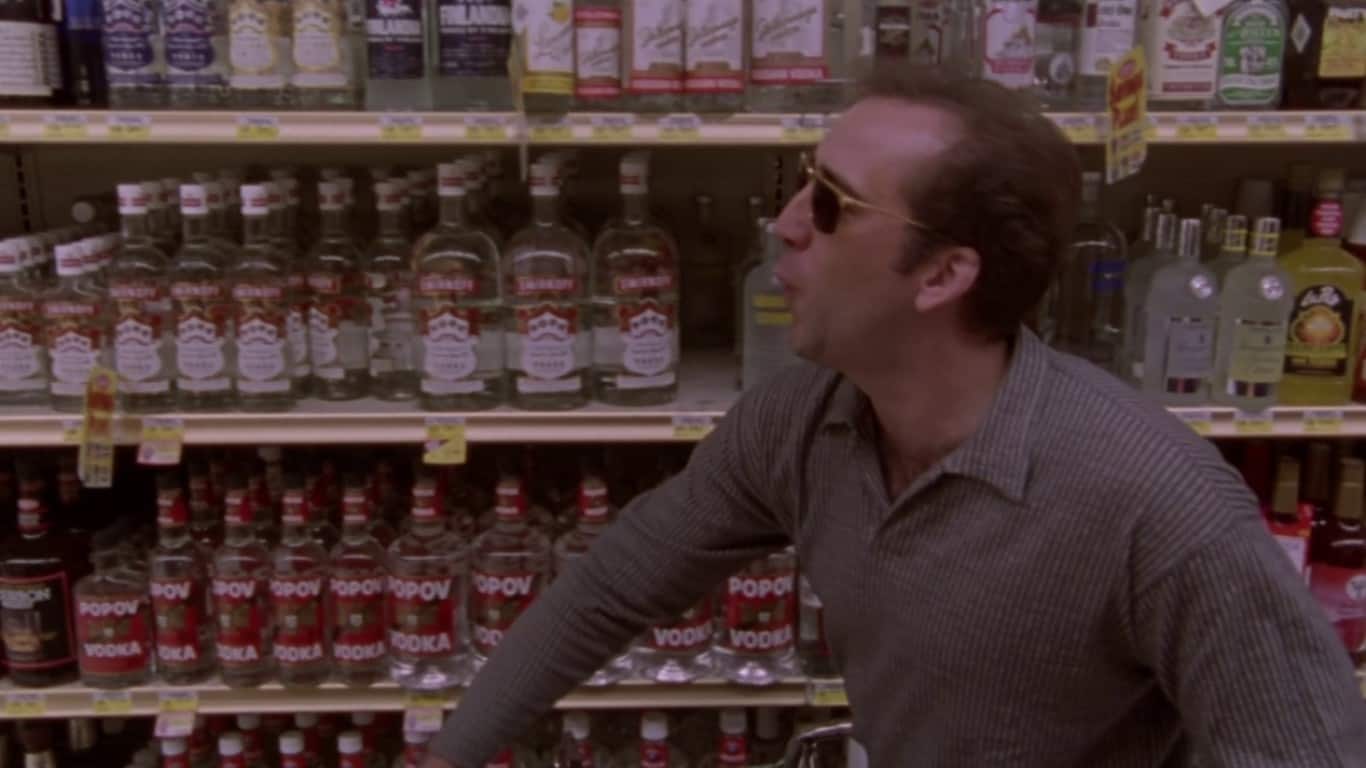
- Director: Mike Figgis
- Starring: Nicolas Cage, Elisabeth Shue, Richard Lewis
Ben Sanderson is a mess. He’s an alcoholic screenwriter whose writing gigs are drying up, so he decides to end it all by drinking himself to death in Las Vegas. After he arrives, however, a chance meeting with a prostitute named Sera flings him into a tender, unconventional relationship.
Leaving Las Vegas is like watching a car crash in slow motion. Yet, within the film’s dark heart, a sense of earnestness and compassion remains, exploring two characters that become intertwined without judgment or remorse. Though it’s a heartbreaking film full of sorrow, “Leaving Las Vegas illustrates the depths of darkness that alcoholism can take you.
The Lost Weekend (1945)
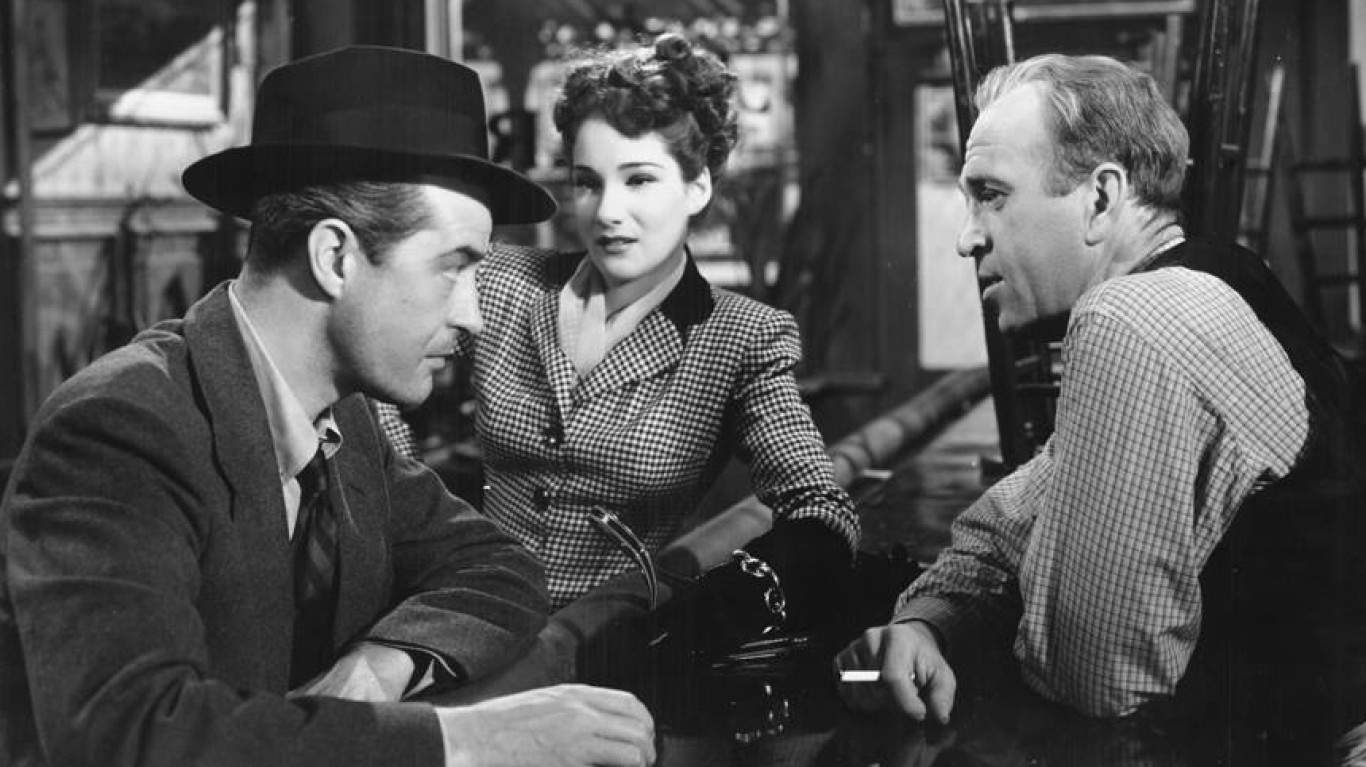
- Director: Billy Wilder
- Starring: Ray Milland, Jane Wyman, Howard Da Sila
Don Birman is a writer on the wagon. Though he’s supposed to spend the weekend with his brother, he passes the duty to his girlfriend. Instead, Birman ends up at a bar. There, he recounts his drinking problem to the bartender as he embarks on such a prolonged bender that it might be his last.
Say what you will about alcoholics, but they often don’t make great bedfellows. Nowhere is this more apparent than in Ray Milland’s performance as Don Birman. He’s unlikable, even cruel, yet his maddening descent into a disease that aims to kill him becomes more understandable as the movie goes on. In “The Lost Weekend” all sugarcoating is forgone to illustrate the humiliation, resentment, and suffering that befalls an alcoholic.
Once Were Warriors (1994)
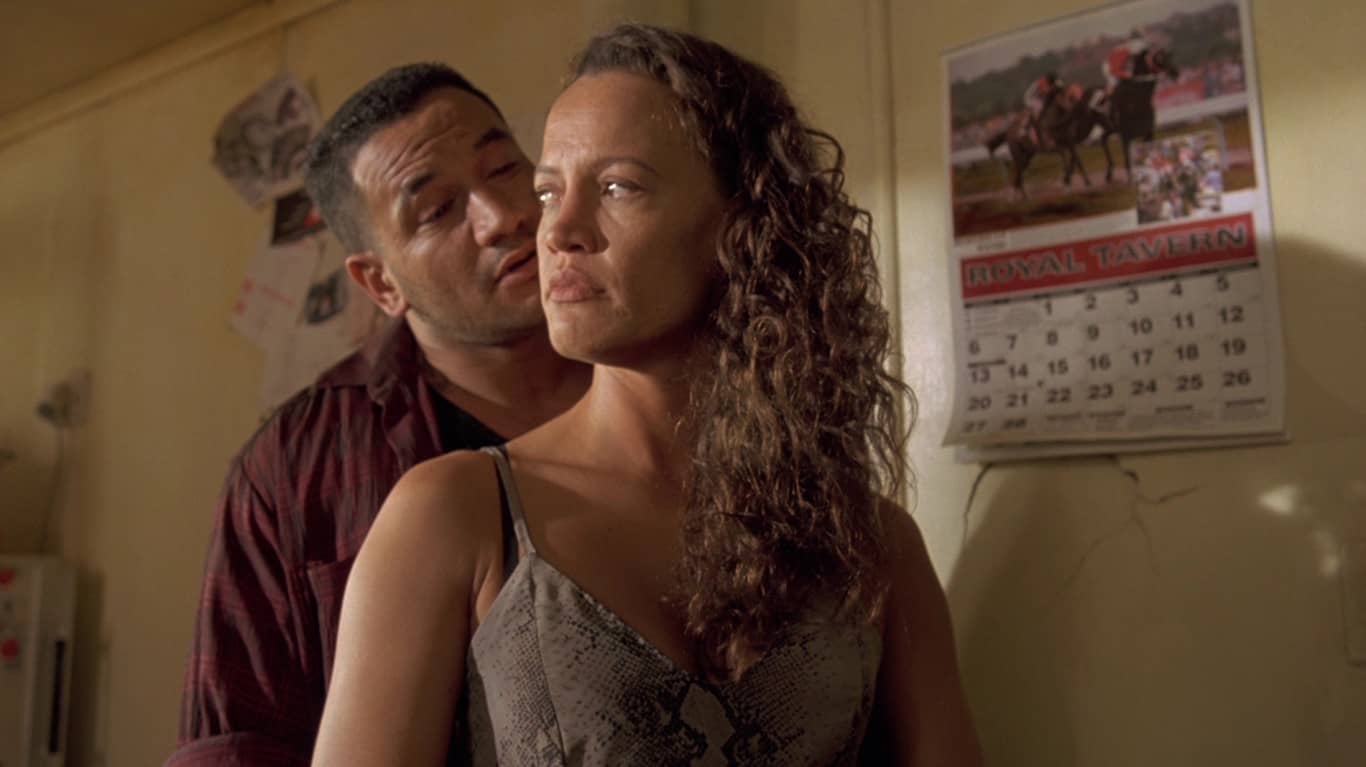
N/A
- Director: Lee Tamahori
- Starring: Rena Owen, Temuera Morrison, Mamaengaroa Kerr-Bell
Jake Heke is an out-of-work Maori living in the slums of Auckland, New Zealand. He spends his days at the pub, before coming home and inflicting terror on his wife and children. As the family unit degrades, the eldest joins a street gang, another child has been placed in foster care, while the remaining child retreats into the pages of her journal.
The first showing from director Lee Tamahori, “Once Were Warriors” is a gritty, intense look at a family in disarray. Both a character study and a portrait of abuse, dysfunction, and self-destruction, the film pulls no punchesâliterallyâin its illustration of the through-line between alcoholism and the destruction it leaves in its wake.
Flight (2012)
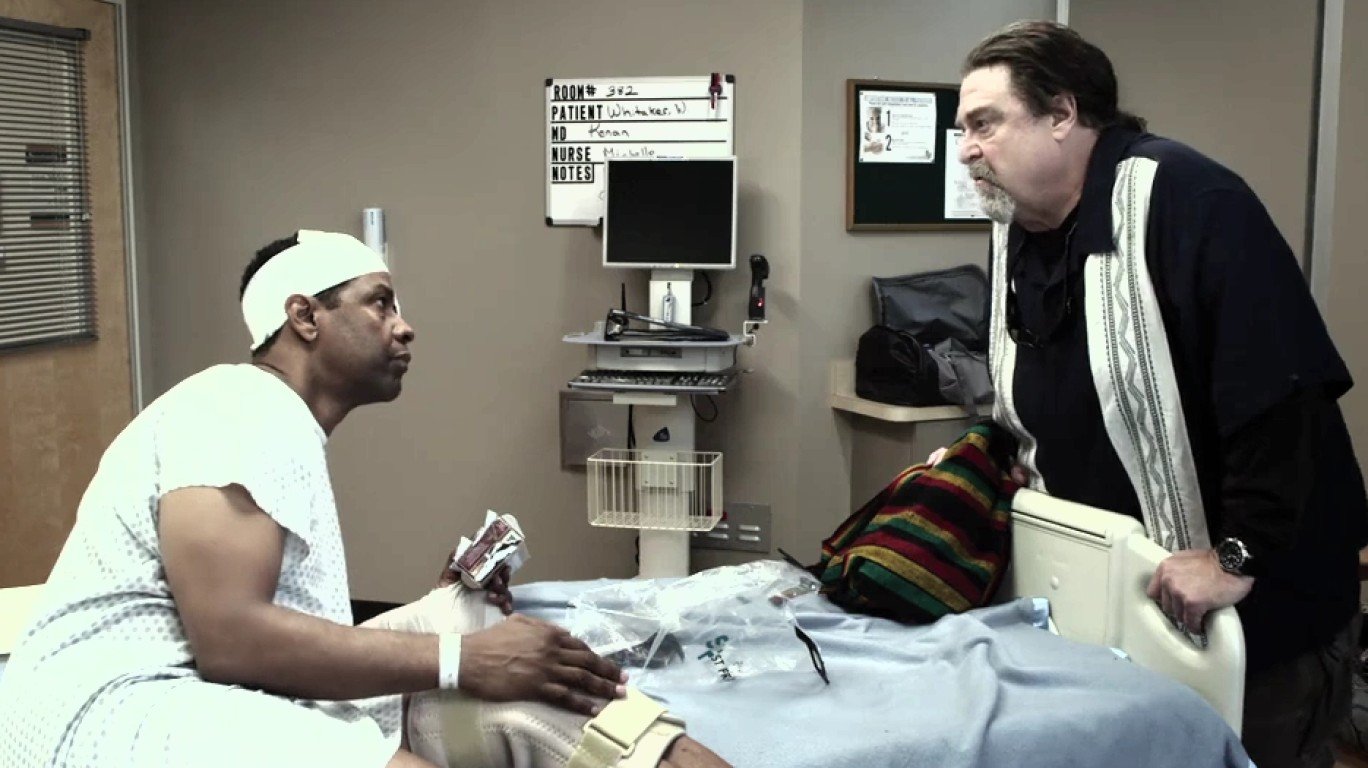
- Director: Robert Zemeckis
- Starring: Denzel Washington, Don Cheadle, Nadine Velazquez
Though commercial airline pilot Whip Whitaker is a drunk and drug addict, he manages to keep it under control and land his planes safely. After a severe malfunction sends the plane careening to the ground, Whitaker manages to land the plane. The investigation into the crash, however, exposes the substance abuse secret he’s tried to hide.
Another formidable movie in the long list of Zemeckis-helmed projects, “Flight” offers no easy answers in its exploration of alcoholism, addiction, and responsibility. Led by a fantastic, intricate performance by Denzel Washington, “Flight” explores the potential salvation that lies at the bottom of a bottle.
Days of Wine and Roses (1962)
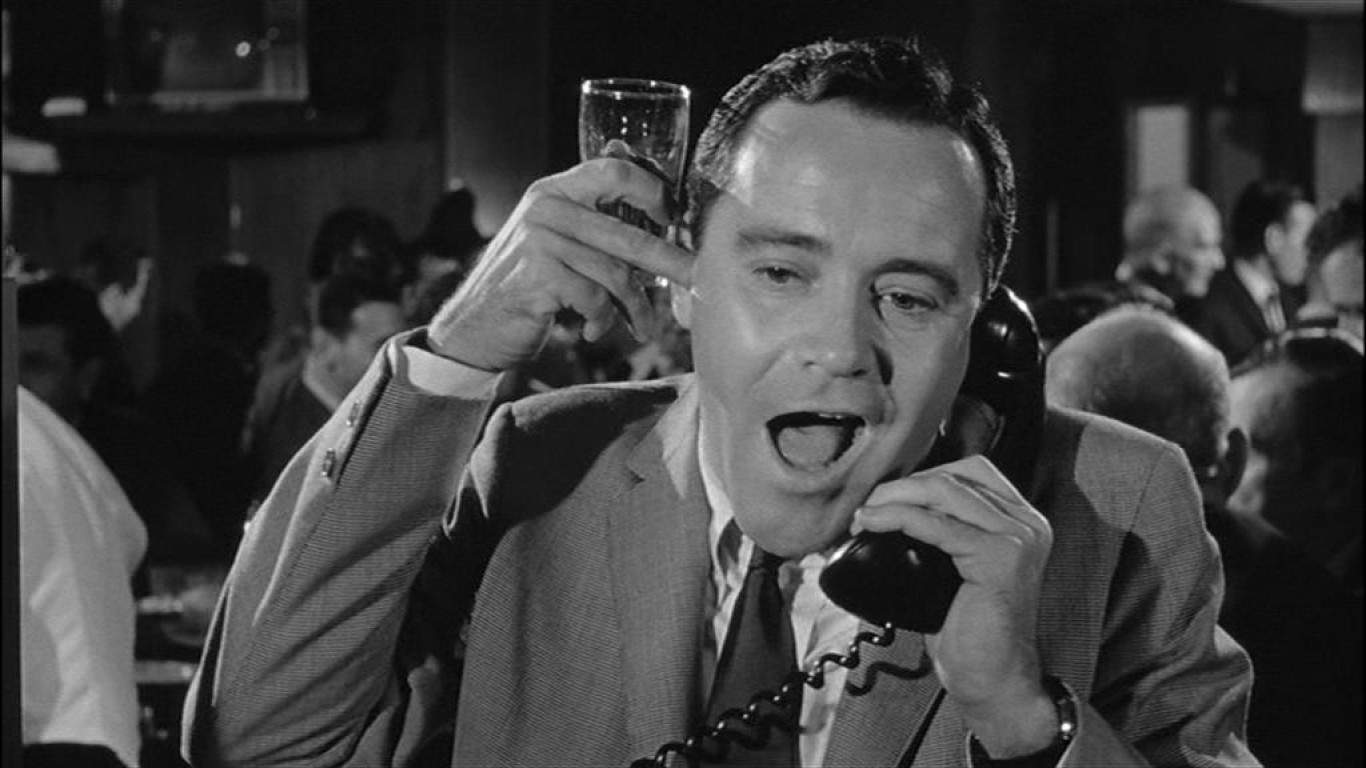
- Director: Blake Edwards
- Starring: Jack Lemmon, Lee Remick, Charles Bickford
When rising executive Joe Clay meets secretary Kirsten Arnesen at an office party, they fall in love and quickly marry. Clay, however, is a burgeoning alcoholic. After he convinces Arnesen to take up his drinking schedule, their relationshipâand subsequently their livesâspiral massively out of control.
Though famed actor Jack Lemmon was previously known for his comedic roles, he hits the dramatic mark in this sad, yet beautiful tale of alcoholic devolution. While at moments the film feels like a long advertisement for Alcoholics Anonymous, other moments shine in sorrow and despair. It’s a meandering film that finds its footing enough to explore the devastation alcoholism wreaks.
Opening Night (1977)
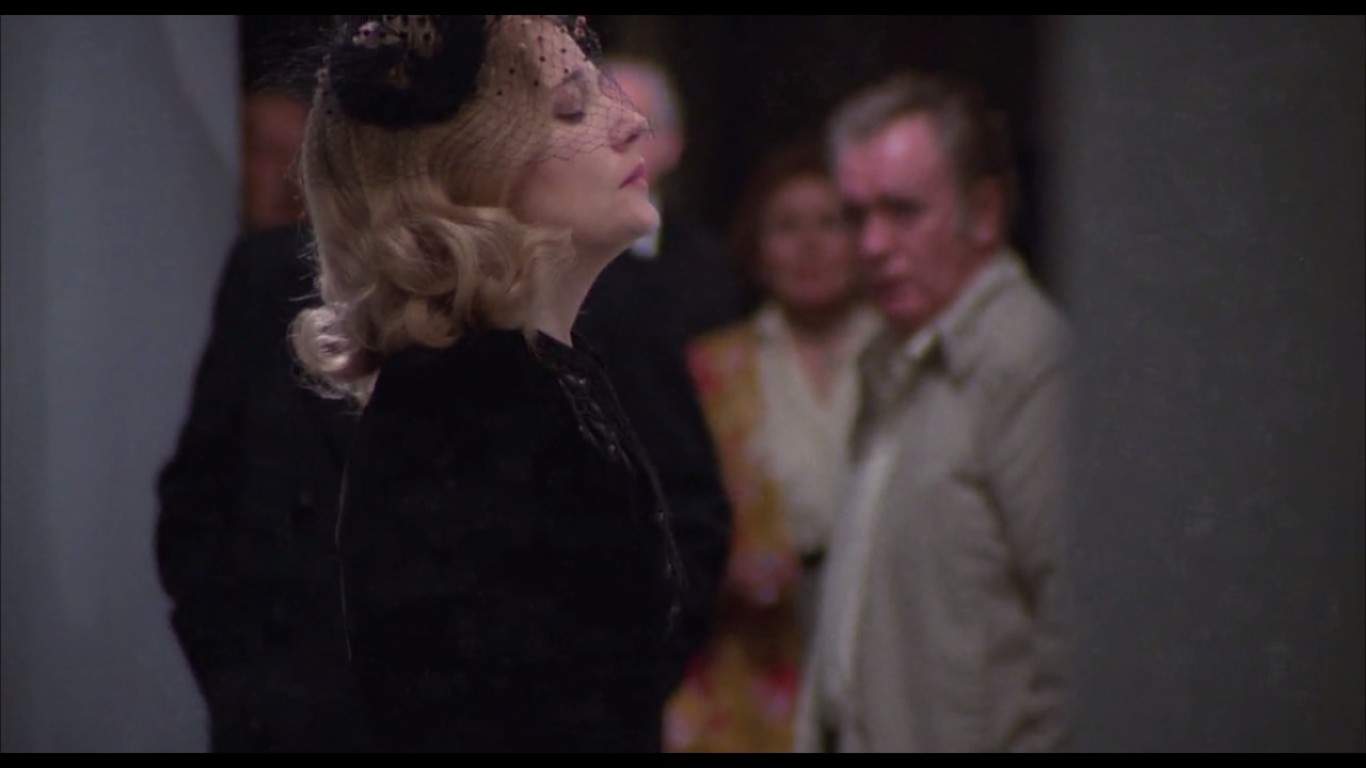
- Director: John Cassavetes
- Starring: Gena Rowlands, Ben Gazarra, Joan Blondell
Myrtle Gordon is an actress and functioning alcoholic a few days away from the opening of her newest play. After her limousine hits a fan chasing after her, Gordon is thrown into a tailspin. Though she goes on a spiritual quest, she doesn’t find the answers she’s looking for and must come to terms with her life and herself as the play’s opening night quickly approaches.
Like many of John Cassavetes’s other films, “Opening Night” explores the internal motivations that create external actions. Lifted by a showstopping performance from Gena Rowlands, this dense, complicated film shows the precariousness of art, the freefall of an alcoholic, and how that all comes together to illustrate the madness behind acting and theatre.
Drunken Angel (1948)
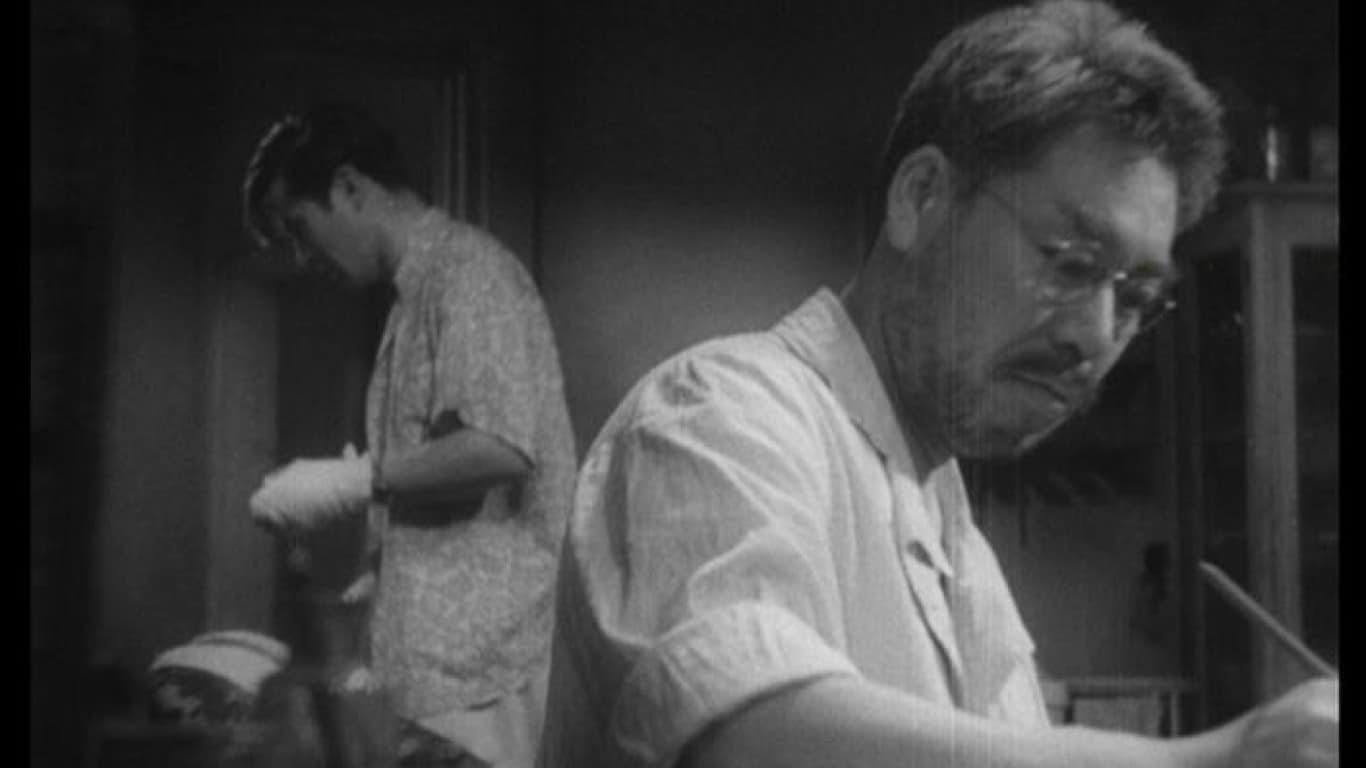
- Director: Akira Kurosawa
- Starring: Toshiro Mifune, Takashi Shimura, Reizaburo Yamamoto
After Yazuka gangster Matsunaga is shot, he is forced to visit a doctor named Sanada. Upon examination, the doctor realizes the gangster is also suffering from tuberculosis. Though he hates the Yakuza, the patient and the doctor come to learn that they are both alcoholics. This bond of despair forces the doctor to face his fears, and gain a better understanding of a man from a world he abhors.
Considered to be a breakthrough film for legendary director Akira Kurosawa, “Drunken Angel” uses powerful noir imagery, mixed with stark realism, to paint a portrait of alcoholism and the unlikely bonds its forges. Though it’s a sad film, there are moments of joy, laughter, and above all, sensitivity to the alcoholic’s plight.
Destroyer (2018)
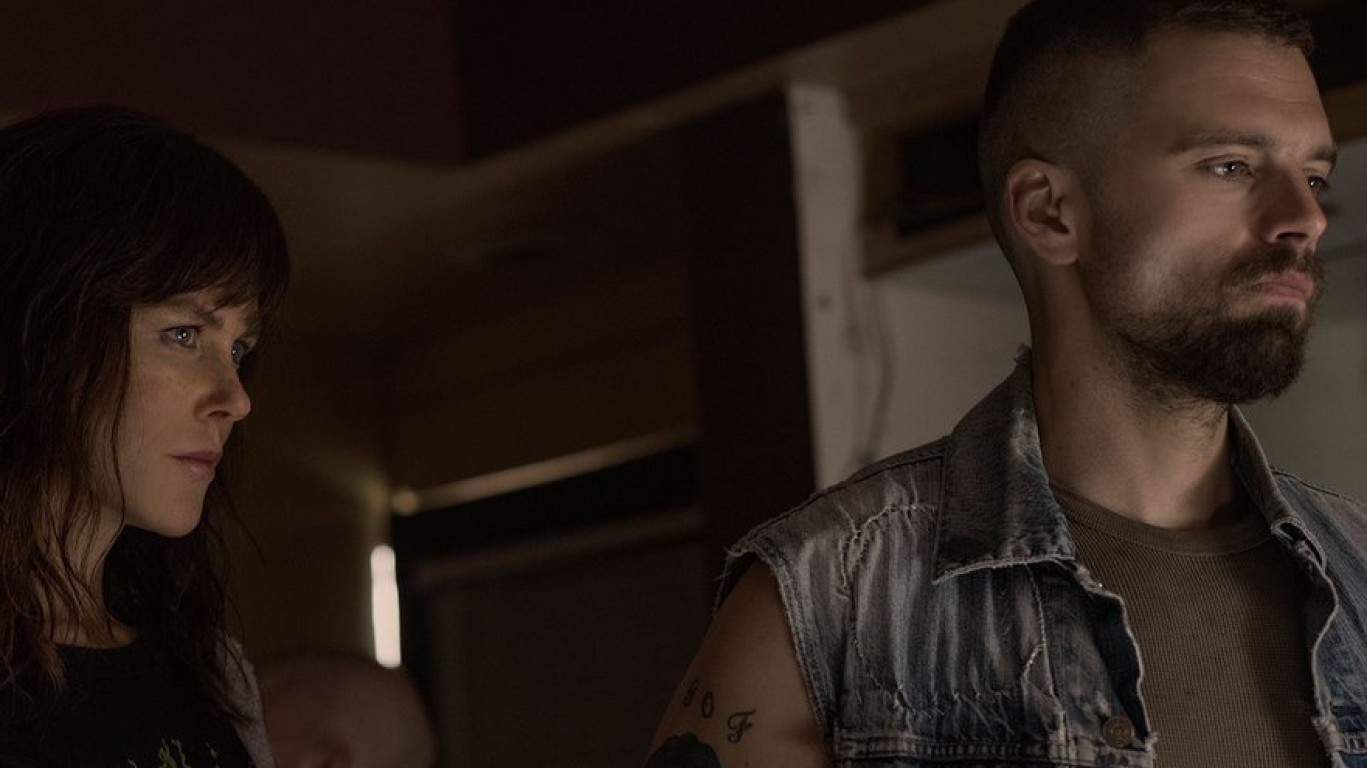
- >Director: Karyn Kusama
- Starring: Nicole Kidman, Toby Kebbell, Tatiana Maslany
Before she was a detective, Erin Bell went undercover to infiltrate a California desert gang with disastrous results. Years later, Bell is still racked by guilt and remorse and gets through the day thanks to a healthy supply of drugs and alcohol. So when the gang leader suddenly reemerges, Bell begins an obsessive journey to find him, bring his gang to justice, and find reconciliation for herself.
Nicole Kidman is practically unrecognizable as Erin Bell in this gritty, unflinching meditation on morality, revenge, and the damage that can’t be undone. Though on the surface it’s a conventional cop drama, there’s a deeper threat weaved through the film that shows what damage does to the damaged as well as the damager.
Crazy Heart (2009)
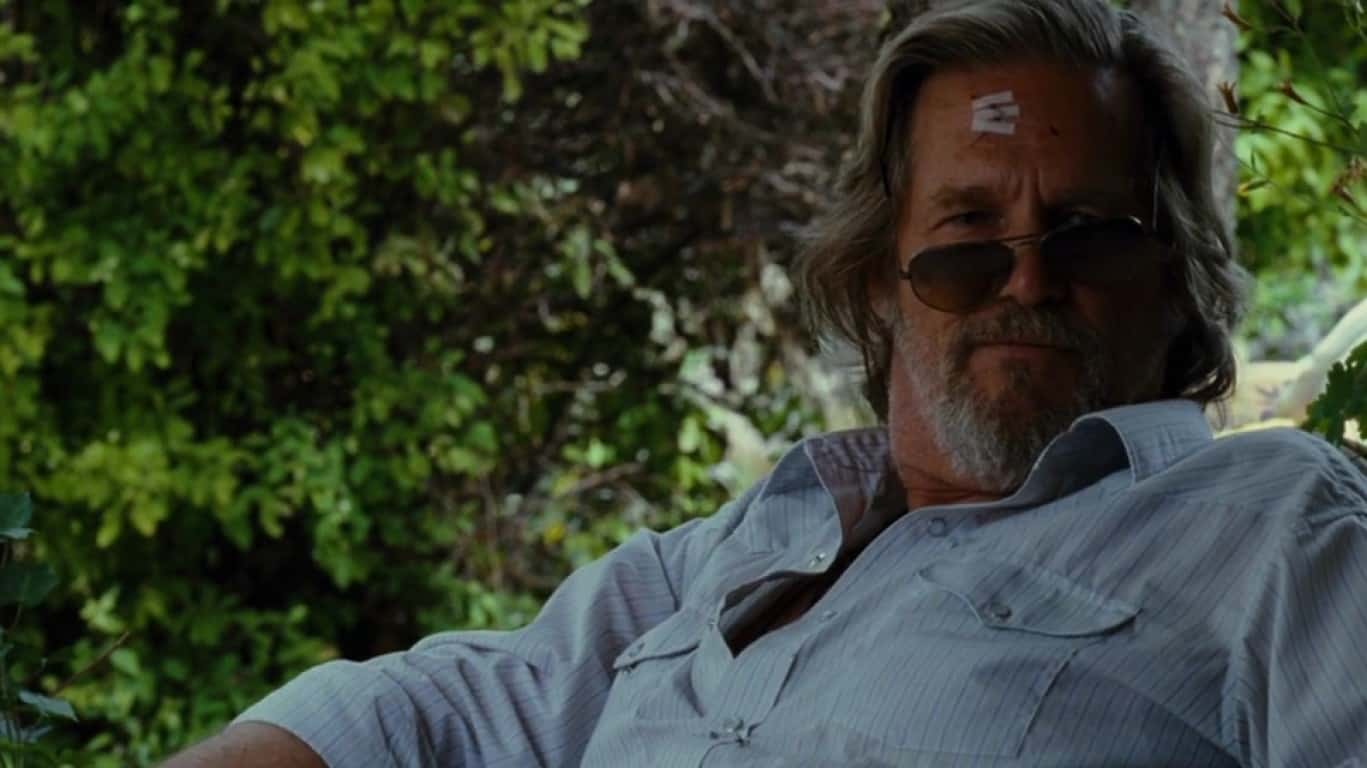
- Director: Scott Cooper
- Starring: Jeff Bridges, Maggie Gyllenhaal, Robert Duvall
Bad Blake was once a Country Music legend. Nowadays, however, he spends his days getting drunk, and if he’s lucky, getting gigs playing local bowling alleys and divebars. Soon, he meets Jean, a reporter who’s to do a story about him. After he warms to her presence, a romance begins before he finds himself at the crossroads of comfort and change.
Sometimes you eat the bar, but other times the bar eats you. Such is the life of Bad Blake in the tender, sorrowful, yet ultimately affirming “Crazy Heart.” Though many movies have been made in this vein, Bridges brings a desperate and broken humanity to the role that highlights the movie’s exploration of alcoholism and faded glory and the connection in between.
